- Home
- Diana Palmer
Night Fever Page 7
Night Fever Read online
Page 7
She wondered what it was all about. Probably another quarrel. The boys never seemed to get along these days. She started a load of clothes in the washing machine and cooked supper. In between, she daydreamed about the district attorney and wished that she was pretty and vivacious and rich.
“Got to go to the library, Becky!” Clay called on his way out the front door.
“Is it open this late…?” she began, but there was the slam of one door, then another, then a car roared away.
She ran to the window. The Harris boys, she thought, furious. He’d been told to stay away from them. Mr. Brady had warned him; so had she. But how could she keep Clay away unless she tied him up? She couldn’t tell Granddad. He’d had a bad day and had gone to bed early. If only she had someone to talk to!
Mack was doing his math homework at the kitchen table without an argument, strangely silent and uneasy.
“Anything I can help you with?” she asked, pausing beside him.
He looked up and then away, a little too quickly. “No. Just something Clay asked me to do and I said no.” He twirled his pencil. “Becky, if you know something bad’s going to happen, and you don’t tell anybody, does that make you guilty, too?”
“Such as?”
“Oh, I didn’t have anything in mind, really,” Mack said evasively.
Becky hesitated. “Well, if you know something wrong is being done, you should tell. I don’t believe in being a tattletale, but something dangerous should be reported.”
“I guess you’re right.” He went back to work, leaving Becky no wiser than before.
Clay went with the Harris boys to pick up their load of crack. In the past three weeks, he’d learned plenty about how to find customers for the Harrises. He knew the kids who were hassled at home, who were having trouble with schoolwork, who were mad for anything outside the law. He’d already made a sale or two and the money was incredible, even with a small commission. For the first time, he had money to flash and Francine was all over him. He’d bought himself a few new things, like some designer shirts and jeans. He was careful to keep them in his locker at school so that Becky wouldn’t know. Now he wanted a car. He just wasn’t sure how to keep Becky in the dark. Probably he could leave it with the Harris boys. Sure, that was a good move. Or with Francine.
He was still seething about Mack. He’d asked him to help him find customers at the elementary school, but Mack had gotten furious and told him he’d do no such thing! He threatened to tell Becky, too, but Clay had dared him. He knew things about Mack that he could tell—like about those girlie magazines Mack hid in his closet, and the butterfly knife he’d traded for at school that Becky didn’t know he had. Mack had backed down, but he’d gone off mad, and Clay was a little nervous. He didn’t think his brother would tell on him, but you never knew with kids.
They were at the pickup point, a deserted little diner out in the boonies, with two suppliers in a four-wheel drive jeep. The Harris boys were acting odd, he thought, noticing the way their eyes shifted. They’d left the motor running in the car, too. Clay wondered if he was getting spooked.
“You go ahead with the money,” Son told Clay, patting him on the back. “Nothing to worry about. We’re always careful, just in case the law makes a try for us, but we’re in the clear tonight. Just walk down there and pass the money.”
Clay hesitated. Up until now, it had just been little amounts of coke. This would label him as a buyer and a dealer, and he could go up for years if he was caught. For a moment he panicked, trying to imagine how that would affect Becky and Granddad. Then he got himself under control and lifted the duffel bag containing the money. He wouldn’t get caught. The Harris boys knew their way around. It would be all right. And this supplier wouldn’t be too anxious to finger him, either, because Clay could return the favor.
By the time he got to the black-clad figure in the trendy sports coat, standing beside a high-class Mercedes-Benz, he was almost swaggering with confidence. He didn’t say two words to the supplier. He handed over the money, it was checked, and the coke, in another satchel, was given to him. He’d seen dealers on TV shows test the stuff, but apparently in real life the quality was assured. The Harris boys didn’t seem bothered at all. Clay took the goods, nodded at the dealer, and walked back to where Son and his brother were waiting, his heart going like a drum, his breath almost gasping out of his throat. It was an incredible high, just overcoming his own fear and doing something dangerous for a change. His eyes sparkled as he reached the car.
“Okay.” Son grinned. He took Clay by the shoulders and shook him. “Good man! Now you’re one of us.”
“I am?” Clay asked, hesitating.
“Sure. You’re a dealer, just like us. And if you don’t cooperate, Bubba and I will swear that you’re the brains of the outfit and that you set up this deal.”
“The supplier knows better,” Clay argued.
Son laughed. “He isn’t a supplier,” he said, studying his nails. “He’s one of Dad’s flunkies. Why do you think we didn’t test the stuff before you handed over the money?”
“If he’s just one of your father’s men…” Clay was trying to think it through.
“There was a surveillance unit across the street,” Son said easily. “They made you. They couldn’t pick you up because there wasn’t enough time to get a backup and they knew you’d run. But they’ve got a tape, and probably audio, and all they need is testimony from eyewitnesses to have an airtight case against you. You bought cocaine—a lot of cocaine. Dad’s flunky won’t mind doing the time, either, for what he’ll get paid. We can always buy him out later. You won’t get the same consideration, of course.”
Clay stiffened. “I thought you trusted me!”
“Just some insurance, pal,” Son assured him. “We want your little brother to do some scouting for us at the elementary school. If he cooperates, you don’t do time.”
“Mack said no. He already said no!” He was beginning to feel hysterical.
“Then you’d better make him change his mind, hadn’t you?” Son said, and his small eyes narrowed dangerously. “Or you’re going to end up in stir for a long, long time.”
And just that easily, they had him. He couldn’t know that the so-called surveillance people were just friends of the Harrises, not heat. Or that Francine was being persuaded to be nice to him to help keep him on the string. Yes, they had the poor fish doubly hooked, and he didn’t even know how caught he really was. Yet.
CHAPTER FIVE
Becky was trying to balance making photocopies for Maggie with typing a desperately needed brief for Nettie, one of the paralegals, and going out of her mind in the process. It had been a rough few days. Clay had been more belligerent than ever—withdrawn, moody, and openly antagonistic. Mack had been withdrawn, too, avoiding his brother and refusing to tell his sister why. It was worse than an armed camp. Granddad was living on her nerves. Becky was, too. She came to work vibrating, wishing she could just climb in the car, drive away, and never look back.
“Can’t you hurry, Becky?” Nettie begged. “I’ve got to be in court at one, and it’s a forty-five-minute drive in lunch-hour traffic! I won’t get to eat as it is!”
“I’m hurrying—really, I am,” Becky assured her, frowning as she tried to make her fingers work even faster.
“I’ll do my own copies,” Maggie said, patting Becky’s shoulder as she walked by. “Just calm down, darlin’. You’re doing fine.”
The sympathy almost brought tears to Becky’s eyes. Maggie was such a love. Becky gritted her teeth and put everything she had into it, finishing in good time to get Nettie off to court.
“Thanks!” Nettie called from the door, and grinned. “I owe you lunch one day!”
Becky just nodded, and paused to catch her breath.
“You look terrible,” Maggie noted as she passed by on her way back from the copying room. “What’s wrong? Want to talk?”
“It wouldn’t do any good,” Becky said with a gentle
smile. “But thanks just the same. And thanks for doing those.”
Maggie held up the copies. “No problem. Don’t try to take on too much at one time, will you?” she added seriously. “You’re the junior here and that puts you in a bad position sometimes. Don’t be afraid to say no when you can’t make a deadline. You’ll live longer.”
“Look who’s talking,” Becky chided gently. “Aren’t you the one who always volunteers for every charity project the firm takes on?”
Maggie shrugged. “So I don’t listen to my own advice.” She checked her watch. “It’s almost twelve. Go to lunch. I’ll take second shift today. You need a break,” she added with a worried glance at Becky’s thin figure in the plain pink shirtwaist dress, her hair all over her face and shoulders, her makeup long gone. “And tidy up first, darlin’. You look like something the cat dragged in.”
“I look like a little green snake?” Becky asked, aghast.
Maggie stared. “I beg your pardon?”
“Well, snakes are all MY cat ever brings in.” She looked down at herself. “I can see me as a giant pink mushroom, maybe. A little green snake? Never!”
“Get out of here,” Maggie muttered.
Becky laughed. Maggie was like a tonic. Pity she couldn’t bottle her and take her home at night. Home was a worse ordeal than work had ever been, and she knew she was losing ground.
She went downstairs to the cafeteria around the corner, surprised to find herself in line with the county district attorney, Kilpatrick himself.
“Hello, Counselor,” she said, trying not to sound as shell-shocked as she felt. He was just dynamite at close quarters, especially in that watered gray suit that emphasized his broad shoulders and dark complexion.
“Hello, yourself,” he mused, glancing at her with faint interest. “Where have you been hiding? The elevator is beginning to bore me.”
She looked up at him with raised brows. “Do tell? Why not try the staircase and see if you can smoke the janitors out of hiding?”
He chuckled. He wasn’t smoking one of those hideous cigars, but she was sure he had one tucked away.
“I’ve already smoked him out of hiding,” he confessed. “Caught the trash can on fire this morning. Didn’t you hear the fire alarm go off?”
She had, but Maggie had checked and it was a false alarm. “You’re kidding,” she said, not sure how to take him.
“No joke. I was on the phone and not paying too much attention to where the ashtray was. A mistake I won’t make twice,” he added. “My secretary had the fire chief make a personal call and give me some literature on fire safety.” He pursed his lips and his dark eyes sparkled. “She wouldn’t be a relative of yours, by any chance?”
She laughed. “I don’t think so, but she sounds like my kind of secretary.”
He shook his head. “You women. A man isn’t safe.” He glanced ahead at the long line with resignation and flipped his wrist to check his watch. “I had two hours when I started, but I had to have my notes typed and pick up another brief before I could get time for lunch.” He shook his head. “Having my office halfway across town from the courthouse isn’t working out too well.”
“Think of the exercise you’re getting,” she said. “That has to be a fringe benefit.”
“It would be, if I needed to lose weight.” He studied her slender body. “You’ve lost some. How’s your brother?” he asked pointedly.
She felt nervous when he looked at her like that. She wondered if he had microscopic vision, because he certainly seemed to see beneath the skin. “He’s all right.”
“I hope he’s keeping his nose clean,” he said evenly. “The Harris boys are up to their collective necks in trouble. Running with them could get him into a scrape you won’t be able to talk him out of.”
She looked up. “Would you send him to prison?”
“If he breaks the law,” he said. “I’m a public servant. The taxpayers expect me to earn the salary I’m paid. Somebody must have told you how I feel about drug pushers.”
“My brother isn’t one, Mr. Kilpatrick,” she said earnestly. “He’s a good boy. He’s just fallen in with a bad crowd.”
“That’s all it takes, you know. The jails are full of good boys who played follow the leader one time too many.” His eyes narrowed. “Do you remember I told you that something big was going down? Maybe a hit? Don’t forget it. Keep your brother at home nights.”
“How?” she asked, spreading her hands. “He’s bigger than I am and I can’t even talk to him anymore.” She drew a hand over her eyes. “Mr. Kilpatrick, I’m so tired of holding up the world,” she said, half under her breath.
He took her arm. “Come on.”
He drew her out of line, to her astonishment, and right out the door.
“My lunch,” she protested.
“To hell with this. We’ll eat at a Crystal.”
She’d never set foot in a Mercedes-Benz in her life until then. It had real leather seats, gray ones, with a headrest and plush comfort. It even smelled like real leather. The dash had wood panels, and they were probably real, too. The car had a polished metallic blue finish, and she caught her breath at the beauty of the carpeted interior.
“You look shocked,” he murmured as he started it.
“The engine really purrs, doesn’t it?” she asked as she fastened her seat belt automatically. “And I guess the seats are real leather? Is it automatic?”
He smiled indulgently. “Yes, yes, and yes. What do you drive?”
“A renovated Sherman tank—at least, that’s what it feels like early on a cold morning.” She smiled across at him. “You don’t have to take me out to lunch. I’ll make you late.”
“No, you won’t. I’ve got time. Is your brother a pusher, Rebecca?”
She gaped. “No!”
He glanced at her as he eased into the turning lane. “Fair enough. Try to keep him out of it. I’ve got my sights on the Harris family. I’m going to nail them before I get out of office, no matter what it takes. Drugs on the street, that’s one thing. Drugs in grammar school—not in my county.”
“You can’t be serious!” she exclaimed. “In midtown, maybe, but not in Curry Station Elementary!”
“We found crack,” he said, “in a student’s locker. He was ten years old and a pusher.” He looked across at her, scowling. “My God, you can’t be that naive. Don’t you know that hundreds of grammar school kids are sent to jail every year for pushing narcotics, or that one kid out of every four has addicted parents in Georgia?”
“I didn’t,” she confessed. She leaned her head against the window. “Whatever happened to kids going to school and playing with frogs and having spelling bees and sock hops?”
“Wrong generation. This one can dissect a bee and the hops are in the beer they drink. They still go to school, of course, where they learn subjects in grammar school that I didn’t get until I was in high school. Accelerated learning, Miss Cullen. We want our kids to be adults early so that we won’t have the bother of childhood traumas. We’re producing miniature adults, and the latchkey kids are at the top of the class.”
“Mothers have to work,” she began.
“So they do. Over fifty percent of them are out there in the work force, while their kids are split up and locked up and divided into stepfamilies.” He lit a cigar without asking if she minded. He knew that she did. “Women won’t have total equality until men can get pregnant.”
She grinned. “You’d have one horrible delivery, I imagine.”
He chuckled softly. “No doubt, and with my luck, it would be a breech birth.” He shook his head. “It’s been a rotten day. I’ve been prosecuting two juveniles as adults this week and I’m bitter. I want more parents who care about their damned kids. It’s my favorite theme.”
“You don’t have any children, I guess?” she asked shyly.
He pulled into a Crystal hamburger place and parked. “No. I’m old-fashioned. I think kids come after marriage.” He opened his
door and got out, helping her out before he locked it. “Feel like a hamburger or chili?”
“Chili,” she said instantly. “With Tabasco sauce on the side.”
“You’re one of those, are you?” he mused, his dark eyes teasing.
“One of those what?” she asked.
He let his hands slide down to enfold hers, and she caught her breath audibly. He paused at the door and looked down again, catching the shocked delight that registered on her soft oval face, in her hazel eyes with their flecks of gold. She looked as surprised as he felt at the contact that ran like electricity through his hand, into his body, tautening it with unexpected pleasure.
“Soft hands,” he remarked, frowning slightly. “Calloused fingers. What do you do at home?”
“Wash, cook, clean, garden,” she said. “They’re working hands.”
He lifted them and turned them in his lean, warm ones, studying the long, elegant fingers with their short, unpolished nails. They looked like working hands, but they were elegant, for all that. Impulsively, he bent and brushed his mouth softly over the knuckles.
“Mr. Kilpatrick!” she burst out, flushing.
His head raised and his eyes danced. “Just the Irish side of me coming out. The Cherokee side, of course, would have you over a horse and out of the country by sundown.”
“Did they have horses?”
“Yes. I’ll tell you all about them one day.” When he linked his fingers with hers and led her inside the hamburger shop, she felt as if she were sleepwalking.
They got their food, found an unoccupied table, and sat down. Becky spooned chili into her mouth while he wolfed down two cheeseburgers and two orders of French fries.
“God, I’m starved,” he murmured. “I never can find enough time to eat these days. The calendar’s overflowing; I’m working most weekends and nights. I even argue cases in my sleep.”
“I thought you had assistants to do that.”
“Our caseload is unbelievable,” he said, “despite plea-bargaining and guilty pleas. I’ve got people in jail who shouldn’t be, waiting for their cases to be put on the court calendar. There aren’t enough courts, or enough judges, or enough jails.”

 A Cattleman's Honor
A Cattleman's Honor For Now and Forever
For Now and Forever Texas Proud and Circle of Gold
Texas Proud and Circle of Gold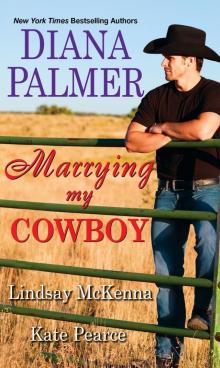 Marrying My Cowboy
Marrying My Cowboy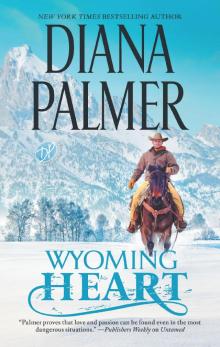 Wyoming Heart
Wyoming Heart Christmas Kisses with My Cowboy
Christmas Kisses with My Cowboy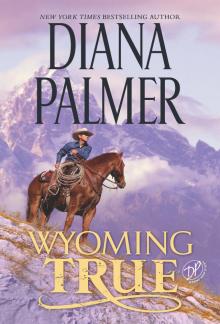 Wyoming True
Wyoming True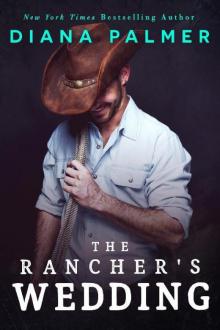 The Rancher's Wedding
The Rancher's Wedding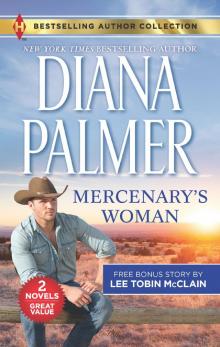 Mercenary's Woman ; Outlawed!
Mercenary's Woman ; Outlawed! Long, Tall Texans: Stanton ; Long, Tall Texans: Garon
Long, Tall Texans: Stanton ; Long, Tall Texans: Garon Lawless
Lawless Blake
Blake Escapade
Escapade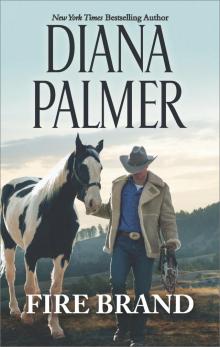 Fire Brand
Fire Brand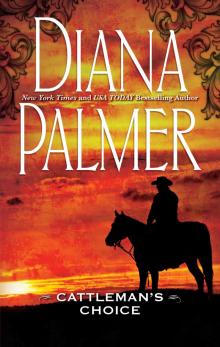 Cattleman's Choice
Cattleman's Choice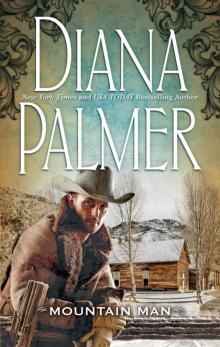 Mountain Man
Mountain Man Long, Tall and Tempted
Long, Tall and Tempted A Love Like This
A Love Like This Miss Greenhorn
Miss Greenhorn Magnolia
Magnolia Lord of the Desert
Lord of the Desert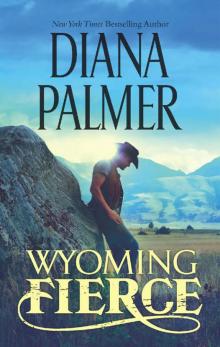 Wyoming Fierce
Wyoming Fierce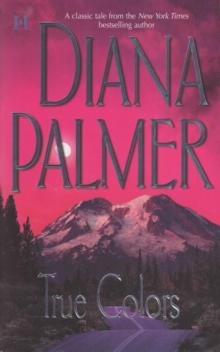 True Colors
True Colors Calamity Mom
Calamity Mom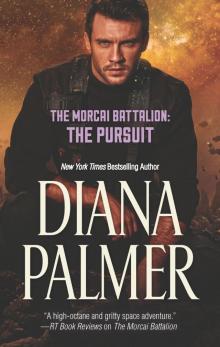 The Pursuit
The Pursuit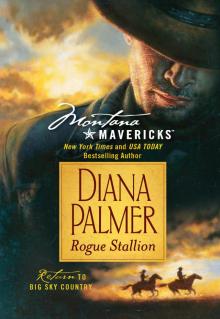 Rogue Stallion
Rogue Stallion Date with a Cowboy
Date with a Cowboy Heart of Winter
Heart of Winter Friends and Lovers
Friends and Lovers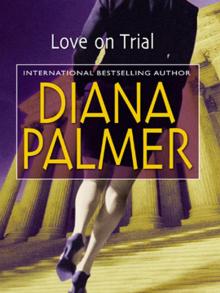 Love on Trial
Love on Trial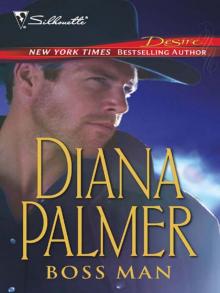 Boss Man
Boss Man Callaghan's Bride
Callaghan's Bride Before Sunrise
Before Sunrise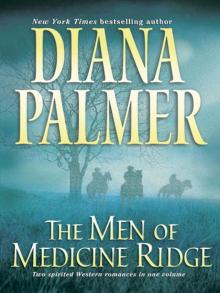 The Men of Medicine Ridge
The Men of Medicine Ridge Texas Proud
Texas Proud Wyoming Tough
Wyoming Tough Passion Flower
Passion Flower Maggie's Dad
Maggie's Dad Donavan
Donavan The Rancher & Heart of Stone
The Rancher & Heart of Stone Long, Tall Texans: Tom
Long, Tall Texans: Tom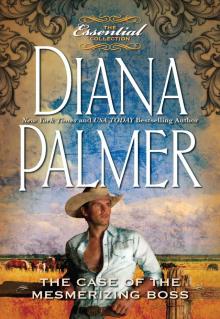 The Case of the Mesmerizing Boss
The Case of the Mesmerizing Boss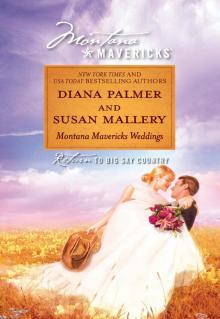 Montana Mavericks Weddings
Montana Mavericks Weddings Redbird
Redbird Wyoming Strong
Wyoming Strong Darling Enemy
Darling Enemy Love by Proxy
Love by Proxy Coltrain's Proposal
Coltrain's Proposal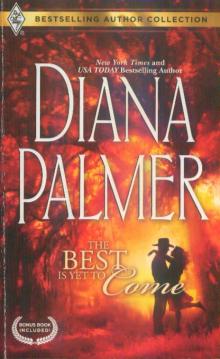 The Best Is Yet to Come & Maternity Bride
The Best Is Yet to Come & Maternity Bride Rawhide and Lace
Rawhide and Lace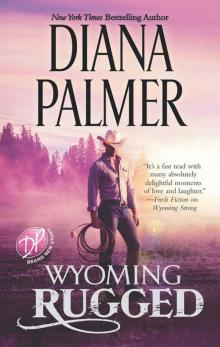 Wyoming Rugged
Wyoming Rugged Patient Nurse
Patient Nurse Undaunted
Undaunted Long Tall Texans Series Book 13 - Redbird
Long Tall Texans Series Book 13 - Redbird Outsider
Outsider Long, Tall Texans: Drew
Long, Tall Texans: Drew Long, Tall Texans--Christopher
Long, Tall Texans--Christopher Merciless
Merciless A Match Made Under the Mistletoe
A Match Made Under the Mistletoe Evan
Evan Hunter
Hunter Now and Forever
Now and Forever Hard to Handle
Hard to Handle Amelia
Amelia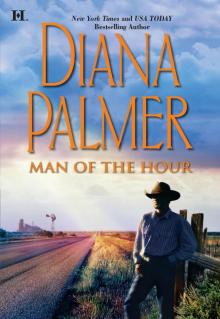 Man of the Hour
Man of the Hour Invincible
Invincible The Maverick
The Maverick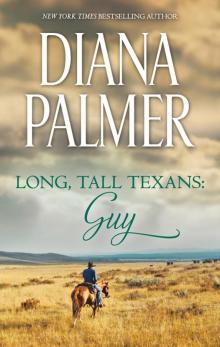 Long, Tall Texans--Guy
Long, Tall Texans--Guy Noelle
Noelle Enamored
Enamored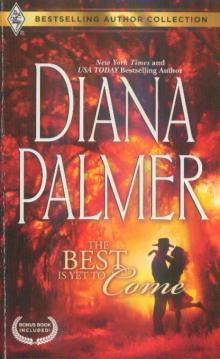 The Best Is Yet to Come
The Best Is Yet to Come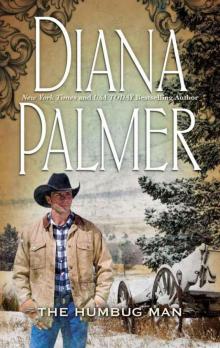 The Humbug Man
The Humbug Man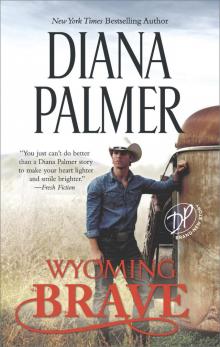 Wyoming Brave
Wyoming Brave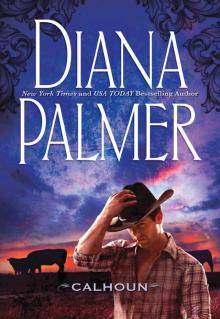 Calhoun
Calhoun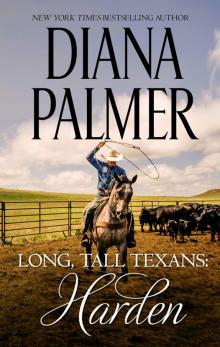 Long, Tall Texans--Harden
Long, Tall Texans--Harden The Reluctant Father
The Reluctant Father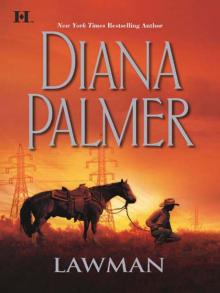 Lawman
Lawman Long, Tall Texans: Hank & Ultimate Cowboy ; Long, Tall Texans: Hank
Long, Tall Texans: Hank & Ultimate Cowboy ; Long, Tall Texans: Hank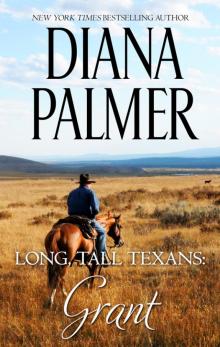 Grant
Grant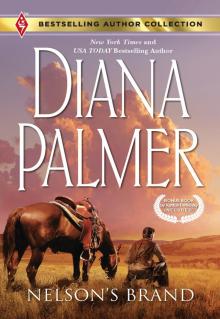 Nelson's Brand
Nelson's Brand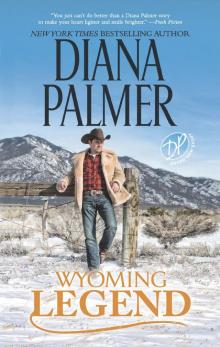 Wyoming Legend
Wyoming Legend Diamond Spur
Diamond Spur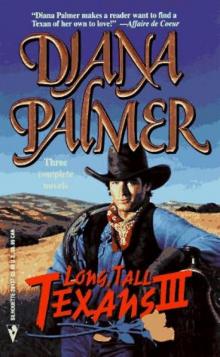 That Burke Man
That Burke Man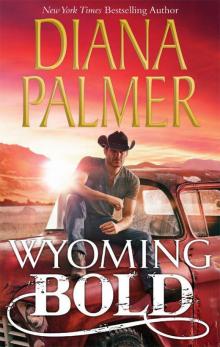 Wyoming Bold (Mills & Boon M&B)
Wyoming Bold (Mills & Boon M&B) Heartless
Heartless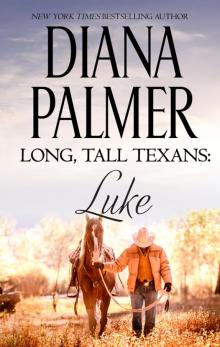 Long, Tall Texans--Luke
Long, Tall Texans--Luke To Have and to Hold
To Have and to Hold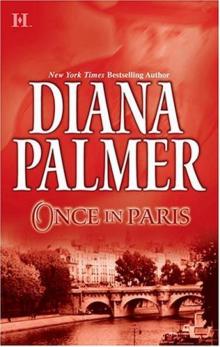 Once in Paris
Once in Paris A Husband for Christmas: Snow KissesLionhearted
A Husband for Christmas: Snow KissesLionhearted Night Fever
Night Fever Beloved
Beloved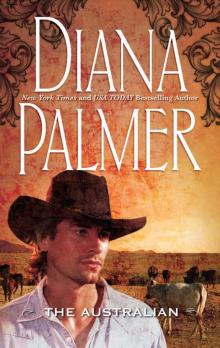 The Australian
The Australian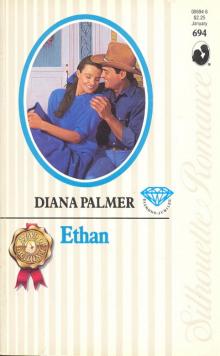 Ethan
Ethan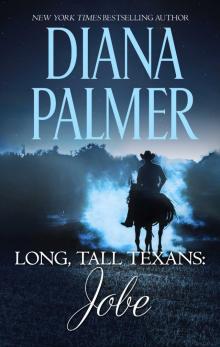 Long, Tall Texans: Jobe
Long, Tall Texans: Jobe Bound by Honor: Mercenary's WomanThe Winter Soldier
Bound by Honor: Mercenary's WomanThe Winter Soldier Tender Stranger
Tender Stranger After Midnight
After Midnight September Morning
September Morning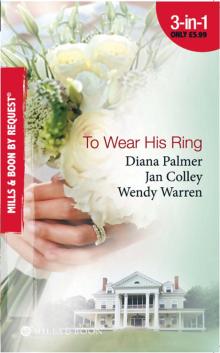 To Wear His Ring
To Wear His Ring Heartbreaker
Heartbreaker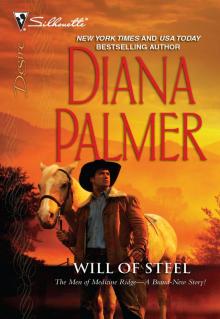 Will of Steel
Will of Steel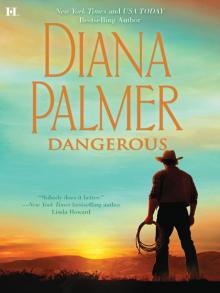 Dangerous
Dangerous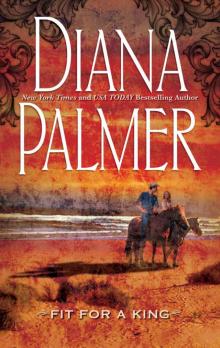 Fit for a King
Fit for a King Diamond in the Rough
Diamond in the Rough Matt Caldwell: Texas Tycoon
Matt Caldwell: Texas Tycoon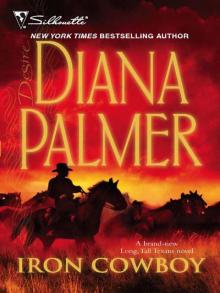 Iron Cowboy
Iron Cowboy Fire And Ice
Fire And Ice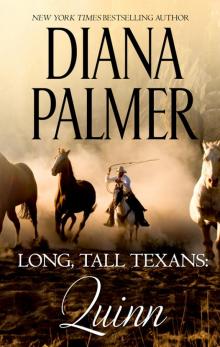 Long, Tall Texans--Quinn--A Single Dad Western Romance
Long, Tall Texans--Quinn--A Single Dad Western Romance Montana Mavericks, Books 1-4
Montana Mavericks, Books 1-4 Denim and Lace
Denim and Lace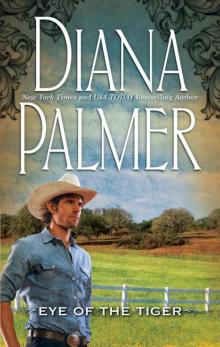 Eye of the Tiger
Eye of the Tiger The Princess Bride
The Princess Bride Long, Tall Texans: Rey ; Long, Tall Texans: Curtis ; A Man of Means ; Garden Cop
Long, Tall Texans: Rey ; Long, Tall Texans: Curtis ; A Man of Means ; Garden Cop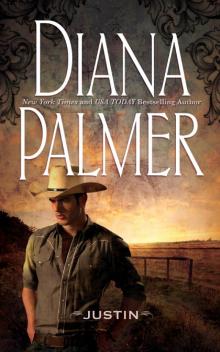 Justin
Justin Nora
Nora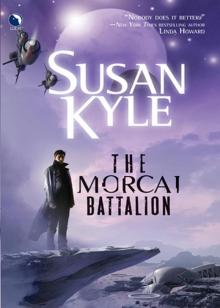 The Morcai Battalion
The Morcai Battalion Heart of Stone
Heart of Stone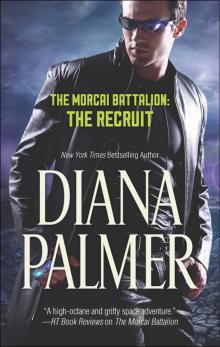 The Morcai Battalion: The Recruit
The Morcai Battalion: The Recruit To Love and Cherish
To Love and Cherish Invictus
Invictus Regan's Pride
Regan's Pride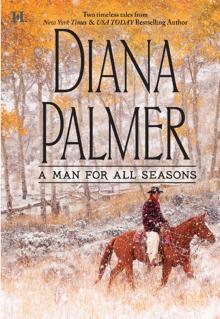 A Man for All Seasons
A Man for All Seasons Sweet Enemy
Sweet Enemy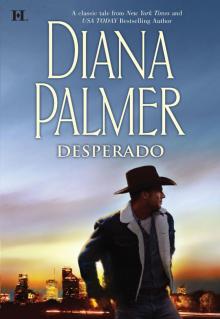 Desperado
Desperado Lacy
Lacy The Winter Man
The Winter Man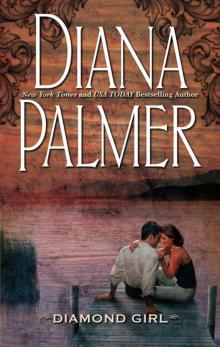 Diamond Girl
Diamond Girl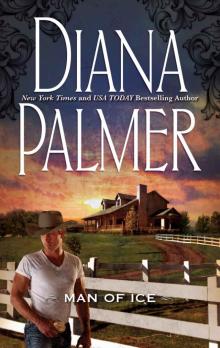 Man of Ice
Man of Ice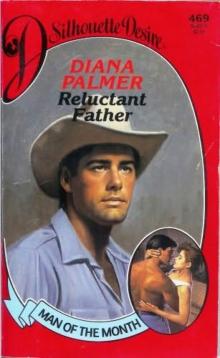 Reluctant Father
Reluctant Father Christmas with My Cowboy
Christmas with My Cowboy Love with a Long, Tall Texan
Love with a Long, Tall Texan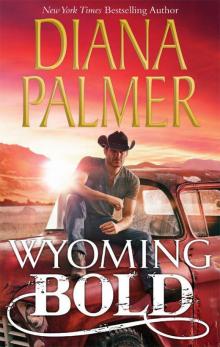 Wyoming Bold wm-3
Wyoming Bold wm-3 King's Ransom
King's Ransom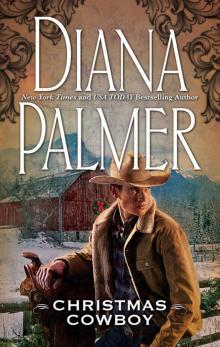 Christmas Cowboy
Christmas Cowboy Heart of Ice
Heart of Ice Fearless
Fearless Long, Tall Texans_Hank
Long, Tall Texans_Hank Unbridled
Unbridled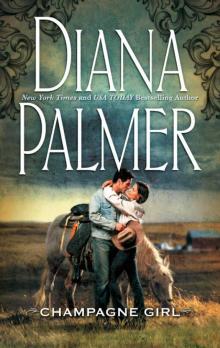 Champagne Girl
Champagne Girl The Greatest Gift
The Greatest Gift Storm Over the Lake
Storm Over the Lake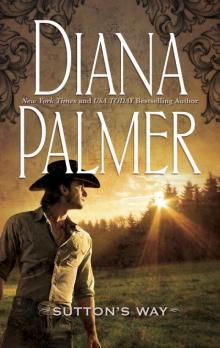 Sutton's Way
Sutton's Way Lionhearted
Lionhearted Renegade
Renegade Betrayed by Love
Betrayed by Love Dream's End
Dream's End All That Glitters
All That Glitters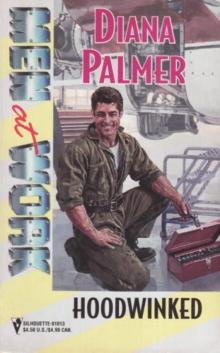 Hoodwinked
Hoodwinked Soldier of Fortune
Soldier of Fortune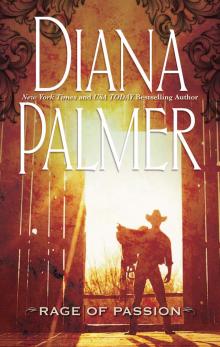 Rage of Passion
Rage of Passion Winter Roses
Winter Roses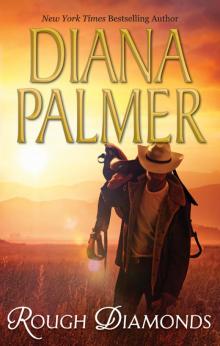 Rough Diamonds: Wyoming ToughDiamond in the Rough
Rough Diamonds: Wyoming ToughDiamond in the Rough Protector
Protector Emmett
Emmett True Blue
True Blue The Tender Stranger
The Tender Stranger Lone Star Winter
Lone Star Winter Man in Control
Man in Control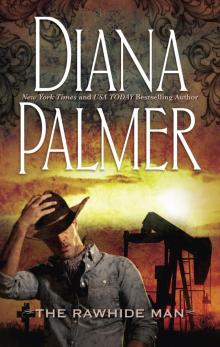 The Rawhide Man
The Rawhide Man Untamed
Untamed Midnight Rider
Midnight Rider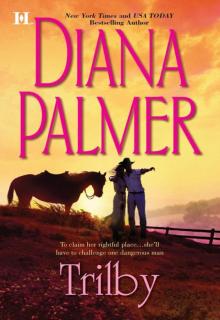 Trilby
Trilby A Long Tall Texan Summer
A Long Tall Texan Summer Tangled Destinies
Tangled Destinies LovePlay
LovePlay Blind Promises
Blind Promises Carrera's Bride
Carrera's Bride Calamity Mum
Calamity Mum Long, Tall Texan Legacy
Long, Tall Texan Legacy Bound by Honor
Bound by Honor Wyoming Winter--A Small-Town Christmas Romance
Wyoming Winter--A Small-Town Christmas Romance Mystery Man
Mystery Man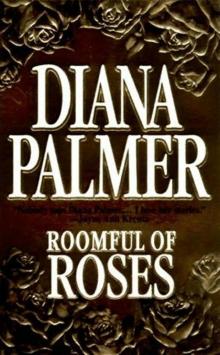 Roomful of Roses
Roomful of Roses Defender
Defender Bound by a Promise
Bound by a Promise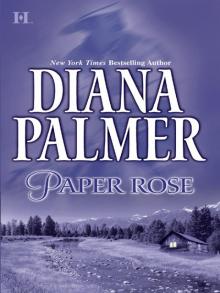 Paper Rose
Paper Rose If Winter Comes
If Winter Comes Circle of Gold
Circle of Gold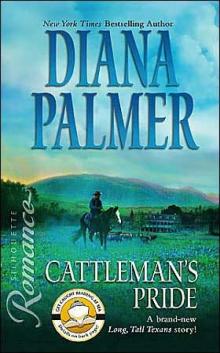 Cattleman's Pride
Cattleman's Pride The Texas Ranger
The Texas Ranger Lady Love
Lady Love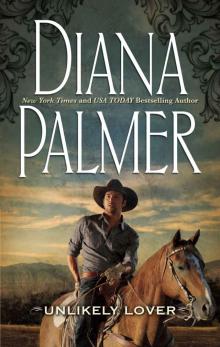 Unlikely Lover
Unlikely Lover A Man of Means
A Man of Means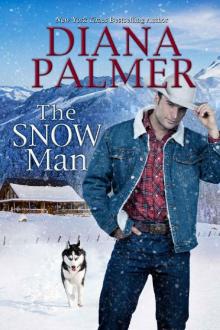 The Snow Man
The Snow Man The Case of the Missing Secretary
The Case of the Missing Secretary Harden
Harden Tough to Tame
Tough to Tame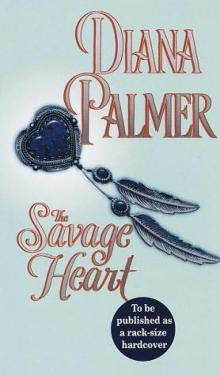 The Savage Heart
The Savage Heart